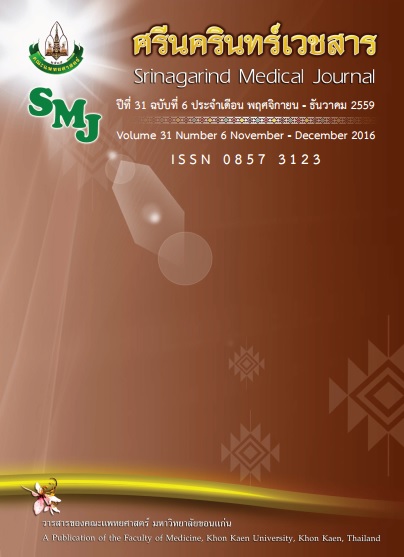The Application Of International Classification of Functioning, Disability And Health (ICF) to Address Functions of Persons with Intellectual Disabilities, Learning Disabilities and Autism for Improving Communication among Providers and Parents
Keywords:
ICF, intellectual disabilities, learning disabilities, autism, rehabilitation, quality of lifeAbstract
Background and Objective: International Classification of Functioning, Disability and Health (ICF) is the classification system recommended by the World Health Organization (WHO) to address functions of persons as an interaction between disease, body functions and environmental factors. Early diagnosis and multidisciplinary rehabilitation are essential for those suffering from intellectual and learning disabilities as well as autism. A number of questionnaires are available for specialists, but none appropriately address functions and their correct use is difficult to communicate to parent and different specialties. This study sought to determine if the ICF system can be used as a tool to harmonize communication and rehabilitation.
Method: A set of 38 ICF codes with 5 qualifiers for each code was selected by parents and specialists. Two-hundred and forty six persons aged between 1-18 years in Khon Kaen province were then interviewed by trained interviewers.
Results: This tool can be used to assess individual and group problems of these children with special needs. The commonest problems in this research group are learning, especially reading, writing and calculation. The second problems are social interaction, communication and emotion.
Conclusion: It is likely that the ICF system can be used to address functions of persons with intellectual difficulties, learning difficulties and autism. Individual care plans and policy recommendations can be developed to improve their quality of life.
การใช้แนวคิดและรหัส ICF ในการแสดงสมรรถนะของผู้ที่มีความบกพร่องทางสติปัญญา การเรียนรู้ และออทิสติก เพื่อการสื่อสารระหว่างบุคลากรที่ให้บริการและผู้ปกครอง
วัตถุประสงค์ International Classification of Functioning, Disability and Health (ICF) เป็นแนวคิดขององค์การอนามัยโลกที่มองความสามารถของบุคคลเป็นองค์รวม ในการดูแลผู้ที่มีความบกพร่องทางสติปัญญา การเรียนรู้ และออทิสติก ซึ่งจำเป็นต้องได้รับการวินิจฉัยอย่างรวดเร็วและให้การช่วยเหลือโดยทีมสหสาขาวิชาชีพ ได้มีการนำแบบประเมินที่หลากหลายโดยผู้เชี่ยวชาญเฉพาะทางมาใช้ แต่ยังไม่มีแบบประเมินที่สามารถนำมาใช้ในการสื่อสารกับผู้ปกครองร่วมกับการให้การฟื้นฟู ผู้วิจัยจึงได้นำแนวคิดและรหัส ICF มาใช้ในการศึกษานี้
วิธีการศึกษา แบบประเมิน ICF 38 รหัสที่มีระดับสมรรถนะย่อย 5 ระดับซึ่งออกแบบโดยทีมสหสาขาวิชาชีพจากคณะกรรมการภาคีเครือข่ายการดูแลบุคคลออทิสติก จังหวัดขอนแก่น ได้ถูกนำมาใช้ในการเก็บข้อมูลสมรรถนะของผู้ที่มีความบกพร่องทางสติปัญญา การเรียนรู้และออทิสติก อายุระหว่าง 1-18 ปี จำนวน 246 รายในจังหวัดขอนแก่นโดยผู้สัมภาษณ์ที่ได้รับการอบรม
ผลการศึกษา แบบประเมินนี้ สามารถแสดงข้อมูลเด็กที่มีความบกพร่องทั้งแบบเป็นรายบุคคล และรายกลุ่ม ปัญหาที่พบมากที่สุดในเด็กกลุ่มที่ทำการศึกษา คือ การเรียนรู้ การอ่าน การเขียน การคำนวณรองลงมาเป็นปัญหาด้าน ความสนใจ อารมณ์ การใช้ภาษา การสื่อสารและปฏิสัมพันธ์
สรุป แบบประเมินสมรรถนะผู้ที่มีความบกพร่องทางสติปัญญา ทางการเรียนรู้ และออทิสติก ICF-38 ซึ่งถูกออกแบบโดยทีมสหวิชาชีพ สามารถใช้ในการประเมินความบกพร่องซึ่งมีความซับซ้อนและจำเป็นต้องได้รับการดูแลแบบบูรณาการ เป็นข้อมูลเชิงประจักษ์ในการกำหนดทรัพยากรที่จะนำมาใช้ในการฟื้นฟูสมรรถภาพและพัฒนาคุณภาพชีวิตของเด็กกลุ่มนี้ต่อไป




